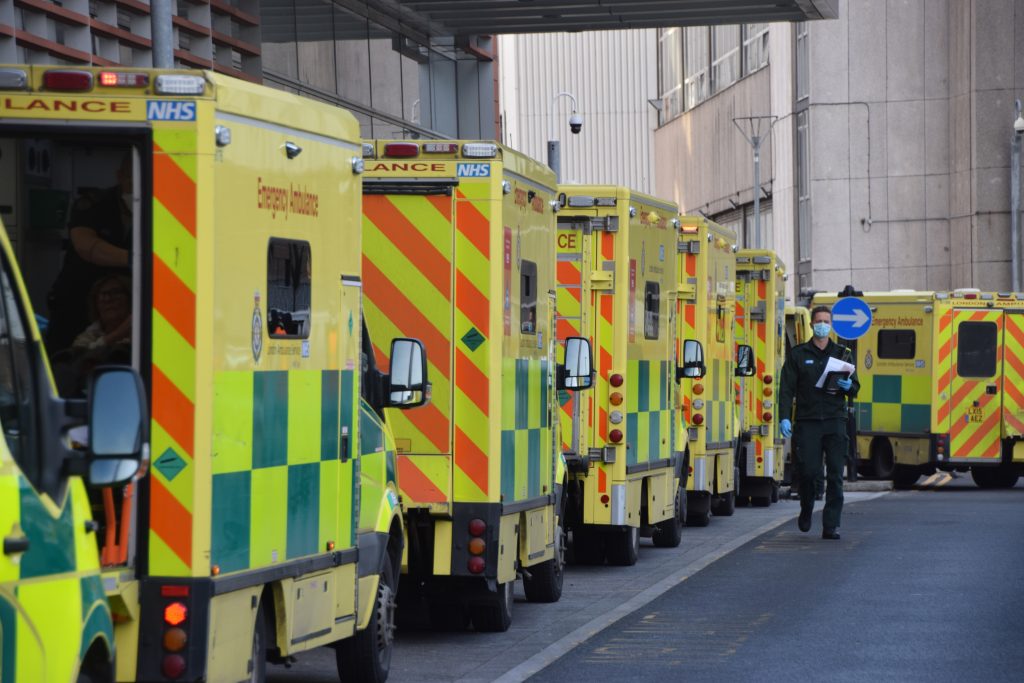
Background:
The Trust’s existing electronic patient care record (EPCR) system had been in place since 2009 and would not address the future needs of the service. In addition, laptops heavily used by staff were in need of a refresh. Whilst the EPCR software contract was coming to an end, it was also deemed uneconomical to maintain the existing laptops. Looking for a full and future-proof procurement process for a new EPCR, the Trust commissioned Apira to create a full business case and manage the procurement of both a new EPCR software system and equipment.
New System Drivers:
Apira’s experience with ambulance services enabled a specific and detailed output based specification to be created for suppliers of both the hardware and software. This expedited conversations with suppliers so we could assess and test the different solutions on the market.
- The existing EPCR system was over 10 years old which was leading to increased system issues. In addition, it would not support future plans
- Lack of ownership and support of the existing system within the Trust
- Aging laptops needed upgrading with easier to handle devices
- No longer economical to repair and maintain equipment
- Software contract was coming to an end

Review & Specification:
To understand the requirements of a new EPCR system, Apira conducted six days of ‘ride-alongs’ with ambulance staff. This gave greater insight into the practicalities of using an EPCR system whilst treating patients onboard an ambulance, enabling Apira to understand what staff really required. For example, it became clear that a handheld tablet device would be easier to use than a laptop.
Following the review Apira developed a detailed specification of the requirements for an EPCR. The output based specification provided options for both hardware technology and software. Apira worked closely with the Trust to set up a series of supplier engagement events which enabled a thorough assessment of the different solutions available against the Trust’s specific requirements. Following this assessment, Apira helped create a shortlist of suppliers that allowed the Trust to evaluate different systems and select their preferred EPCR.

”Apira helped the service deploy a pilot scheme before rollout in Bedfordshire. This has provided us with an opportunity to identify and iron out any glitches or issues with the system and will make the go-live run as smooth as possible.”
Daniel Phillips
Clinical Lead
The Solution:
Siren Nova by Medusa Medical Technologies (recently acquired by Emergency Reporting) was selected for the EPCR software. Pilot testing of this system proved it to be more intuitive, quicker to update patient information and faster to access. Apple iPads from Telefonica were selected as the solution to replace the existing laptops at the Trust. Feedback from staff overwhelmingly supported the use of iPad devices because of their lightness, ease of use and responsiveness.
Achievements:
As a result of the in-depth specification and a thorough staff adoption programme from Apira, the new EPR system delivered clear benefits to the Trust:
- Early positive feedback from users of the new system
- Adopted a blended training programme for staff during the COVID-19 pandemic through virtual and online training
- At end of roll out, blended training will have been delivered to 4,000 users including trainers, super users and end users in the 18 operationalareas and 7,500 square miles the Trust operates over
- Communications support has been provided across the service through a mix of channels including social media groups, which were adjusted for each region.
The Future:
Apira will continue to support the rollout of iPads and the EPCR system across the region and we will deliver ongoing training to ‘super-users’ and users via a virtual modular training system. This will deliver efficiencies to the Trust and will reduce the need to take staff away from their vital work treating patients
To find out more about EPCR and other services offered by Apira, please contact Rory Dennis, Director of Growth rory.dennis@apira.co.uk